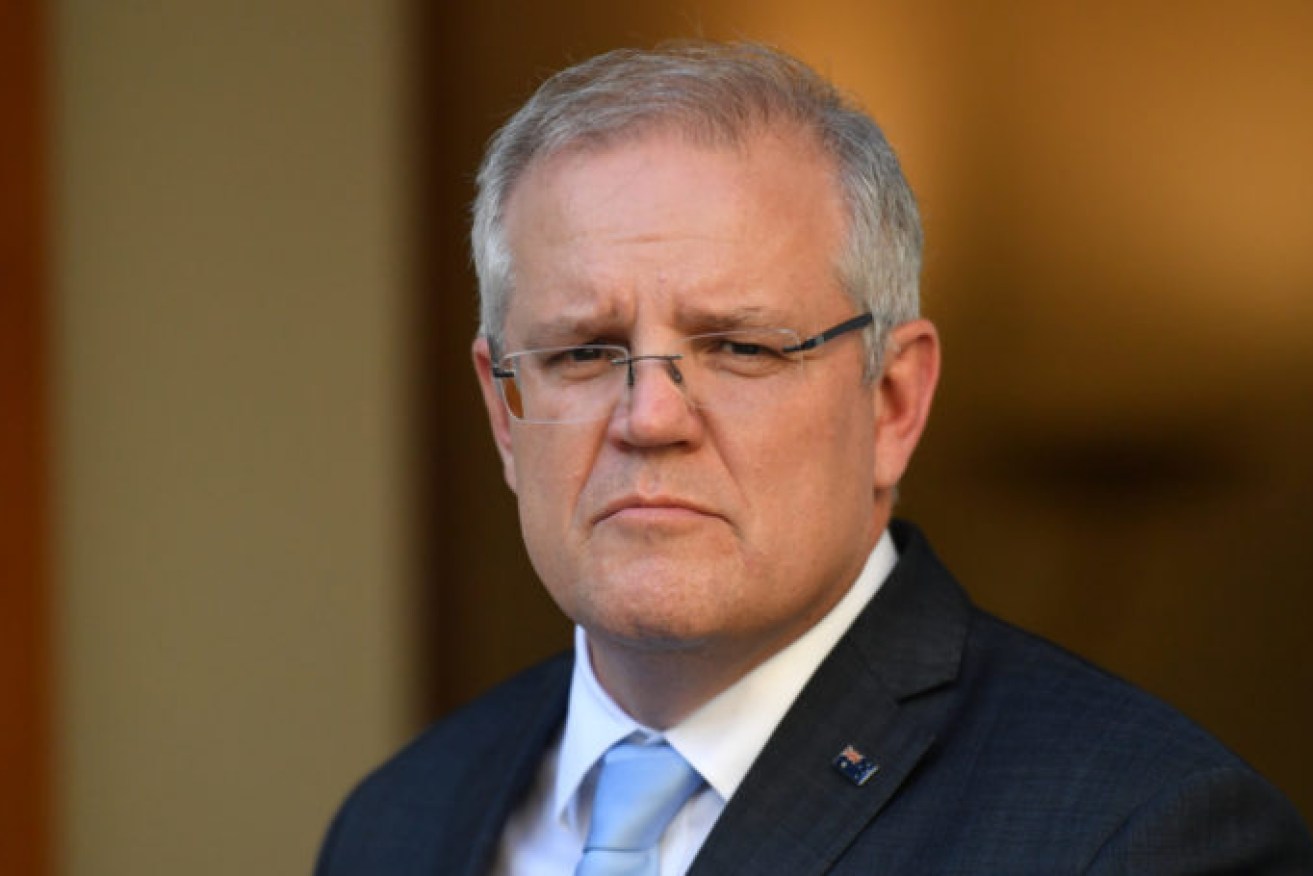Morrison’s need for control trashed conventions and accountability
The former Prime Minister’s moves to secretly increase his powers treated Cabinet and the public with contempt, writes Michelle Grattan.

Photo: Mick Tsikas/AAP
The only credible explanation for Scott Morrison personally installing himself, as an undisclosed ministerial partner, in several portfolios is the former prime minister’s passion for control.
The fact he didn’t tell senior colleagues, let alone the public, of this strange arrangement reflects another of his passions – for secrecy.
The revelation of the arrangement has further tarnished Morrison’s already battered reputation after his humiliating election loss.
As of late Monday, Morrison had given no public explanation for his highly unorthodox and indefensible behaviour towards his ministers.
He texted Sky, which sought comment, that since leaving the prime ministership he had not “engaged in any day to day politics”. Sky quickly pointed out he’s still in parliament.
Morrison’s odd conduct was revealed in a new book, Plagued, by Simon Benson and Geoff Chambers, journalists with The Australian.
They wrote that early in the pandemic Morrison “hatched a radical and until now secret plan […] He would swear himself in as health minister alongside [Greg] Hunt.
“Such a move was without precedent, let alone being done in secret, but the trio [which included attorney-general Christian Porter] saw it as an elegant solution to the problem they were trying to solve – safeguarding against any one minister having absolute power.
”‘I trust you, mate,’ Morrison told Hunt, ‘but I’m swearing myself in as health minister, too.’
“It would also be useful if one of them caught Covid and became incapacitated. Hunt not only accepted the measure but welcomed it.
“Considering the economic measures the government was taking, and the significant fiscal implications and debt that was being incurred, Morrison also swore himself in as finance minister alongside Mathias Cormann. He wanted to ensure there were two people who had their hands on the purse strings,” Benson and Chambers wrote.
This “elegant solution” was anything but. In allegedly protecting against a minister having too much power, it was just increasing the prime minister’s power. As for a minister becoming incapacitated: replacing them quickly is easy.
Unlike Hunt, Cormann didn’t even receive the courtesy of being told he had a silent ministerial partner.
Morrison did not exercise any powers as finance minister but it was another story in resources, as we have learned as more information comes out.
According to The Australian, in April 2021 Morrison was appointed minister for the portfolio industry, science, energy and resources.
Later that year, with the election approaching, the PM used his power to veto the permit for the PEP11 gas exploration off the NSW coast. This was a highly political move to try to save and win votes. The bid, however, was unsuccessful – all four backbenchers whose names were on the press release lost their seats.
Then resources minister Keith Pitt – who had another view on the exploration issue – has indicated he knew of the dual ministerial power some time before and wasn’t happy.
Morrison at the time was asked about his earlier line that the ultimate decision on the drilling lay with Pitt. “I decided to take the decision as the prime minister, which I’m authorised to do,” he said.
In retrospect, his wording was precise, alluding to his own ministerial power.
The matter is now in court, where Morrison is named as “the responsible Commonwealth minister”.
Barnaby Joyce, Nationals leader before the election, knew of Pitt’s situation (as did Joyce’s predecessor, Michael McCormack) although he wasn’t aware of the other double ups.
David Littleproud, now Nationals leader, on Monday described Morrison’s behaviour as “pretty ordinary”. “If you have a cabinet government, you trust your cabinet.”
Opposition leader Peter Dutton was in the dark, saying, “Obviously the then prime minister had his reasons, his logic for it, but it was not a decision I was party to or was aware of. It was a decision-making process that he’s made.”
Anthony Albanese has sought advice from the Solicitor-General and was being briefed on Monday about the arrangement.
“This is extraordinary and unprecedented,” Albanese said. Morrison had been running “a shadow government that was operating in the shadows”.
It was “the sort of tin-pot activity that we would ridicule if it was in a non-democratic country”.
Governor-General David Hurley indicated in a statement from his office that the constitutional provisions had been satisfied.
“The Governor-General, following normal process and acting on the advice of the government of the day, appointed former prime minister Morrison to administer portfolios other than the Department of the Prime Minister and Cabinet,” the statement said.
“The appointments were made consistently with section 64 of the Constitution.
“It is not uncommon for ministers to be appointed to administer departments other than their portfolio responsibility. These appointments do not require a swearing-in ceremony – the Governor-General signs an administrative instrument on the advice of the prime minister.”
This highlights the different between what is legal and what is proper.
Morrison was savvy enough to ensure his arrangement did not flout the law. But it did flout the conventions of how cabinet government and ministerial accountability should work.
Morrison treated senior colleagues with disdain.
He treated the public as mugs, undeserving of the right to know.
But, though the voters had no idea of this strange and narcissistic arrangement, they knew him well enough to decide in May that he wasn’t the leader they wanted.
Michelle Grattan, Professorial Fellow, University of Canberra
This article is republished from The Conversation under a Creative Commons license. Read the original article.




